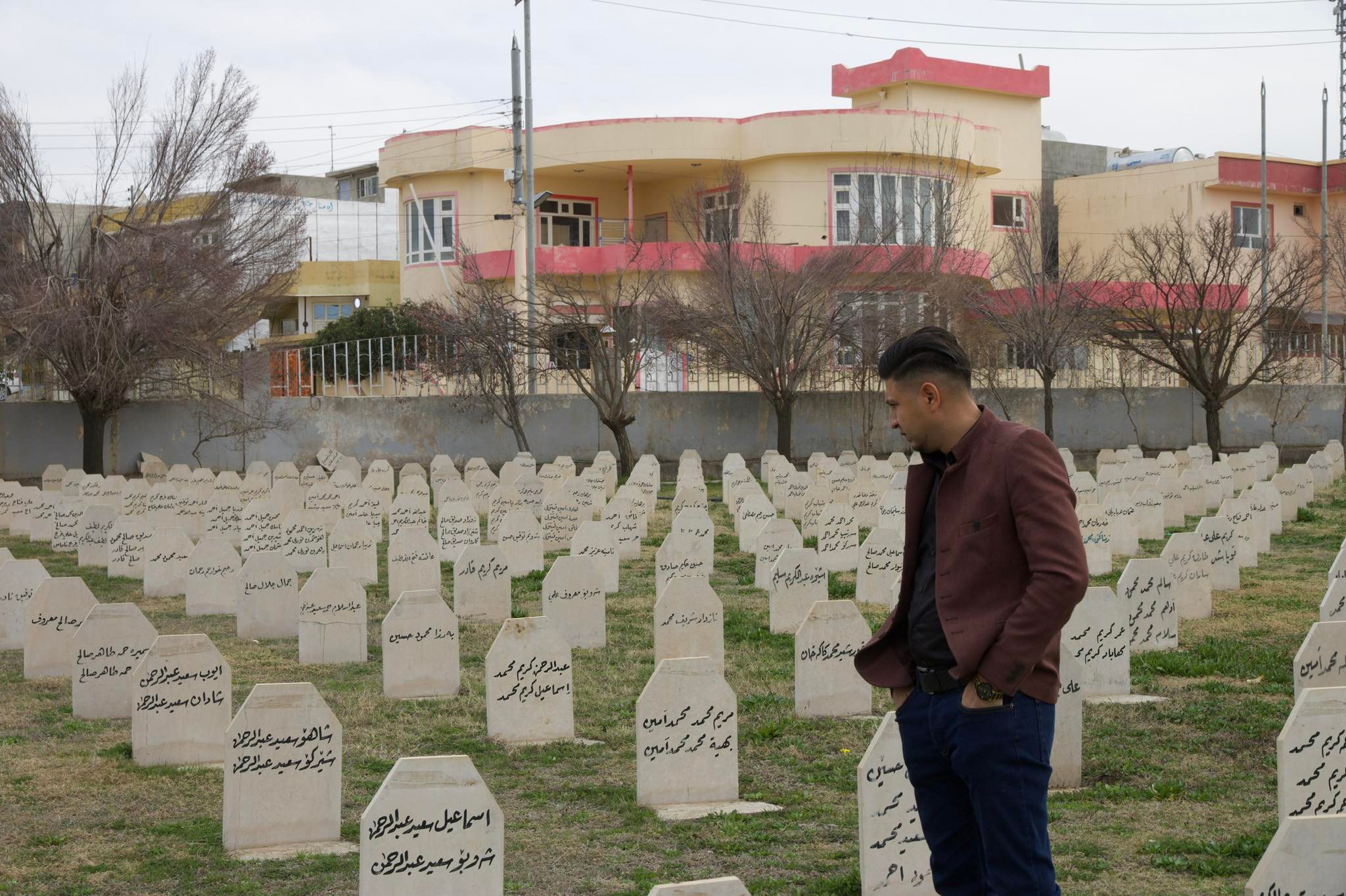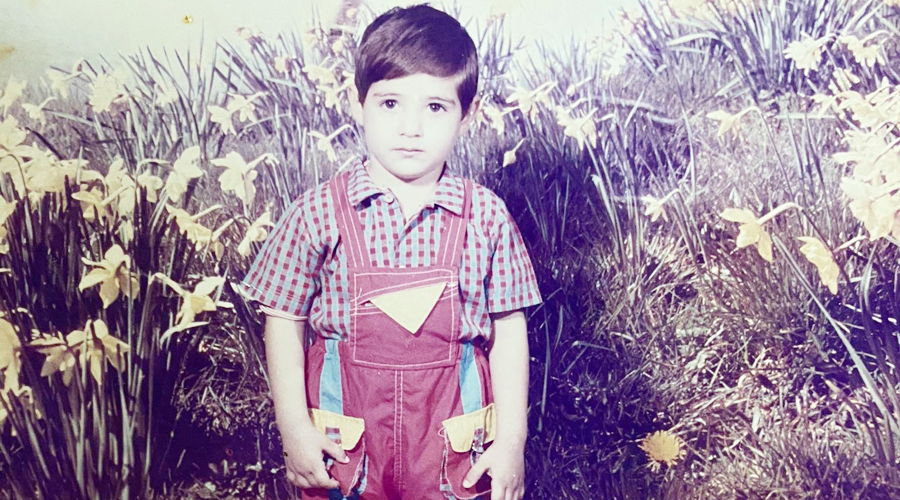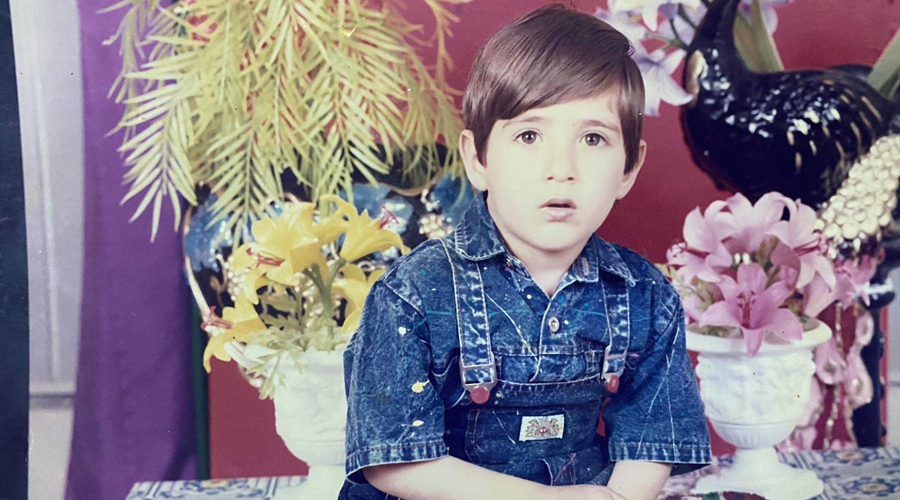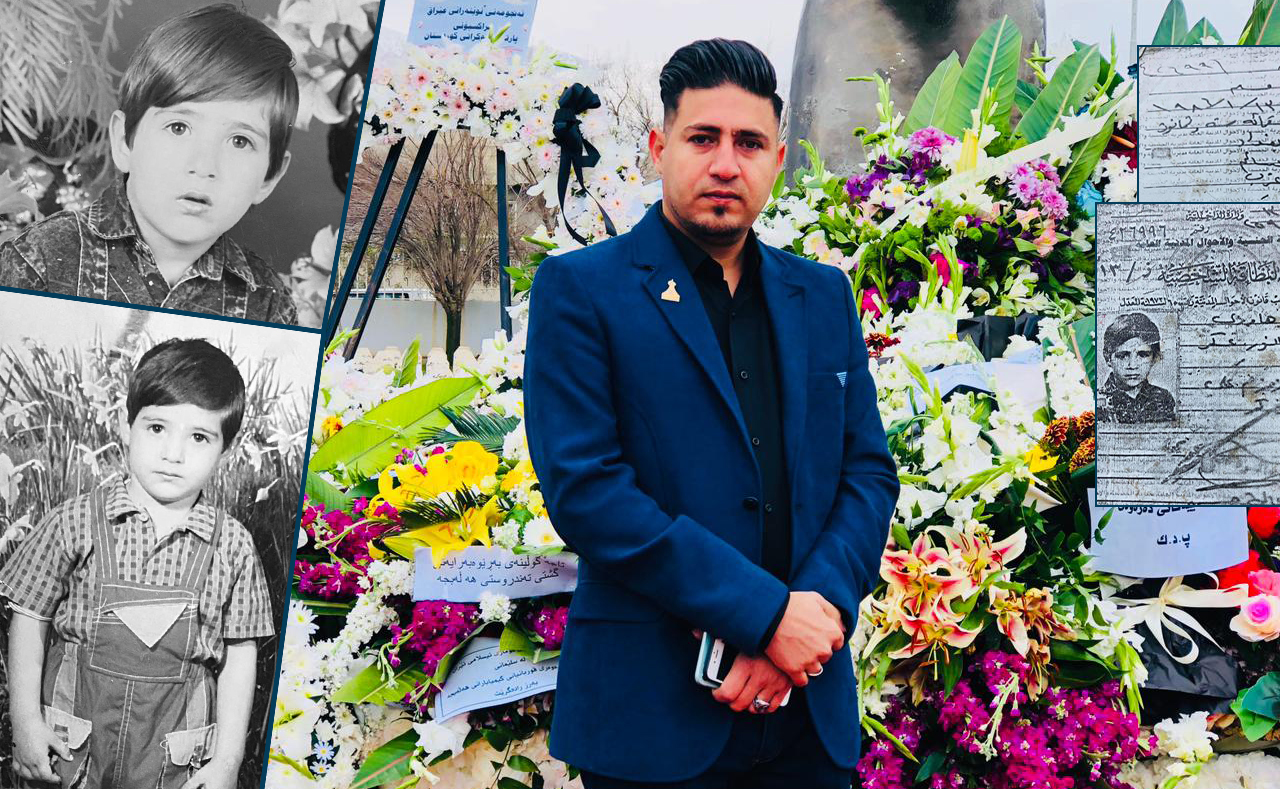“They told me that I am not the son of this family, and that I am from the city of Halabja.” After three decades living as a member of a Kirkuki family, Hawry Anwar held the hands of his three children and headed to Halabja. He wandered around the city’s martyr’s cemetery and said, “I want to know where my father, mother and relatives are.”
In June 2021, Hawry had a conversation with the woman raised him like her son about the inheritance issue following the death of the father, yet he was shocked when she told him he is not the son of the family.
“One day, my mother told me that I am not the son of this family and that I am one of the children of Halabja went missing after the bombing of the city with chemical weapons,” Hawri says. At that moment, he felt a shock that turned his life upside down.
One day, my mother told me that I am not the son of this family
"So, what the neighbors told me was true, that I wasn't the son of that family," Hawry adds.
According to the civil status card, Hawry Anwar was born in Baghdad on January 13, 1986.
He pointed out that some of the children of the Rahimawa neighborhood of Kirkuk, where he spent three decades, told him that he did not belong to that family, and these words were occupying his mind throughout the years.
“Whenever they told me that, I would ask my father if it was true, but he would tell me that it was not true, and that I was their son,” Hawry recalls.
This issue erupted after the death of Anwar Askar in June 2021 of infected with the Corona virus, when it came to the issue of dividing the shares.
“One day, my mother told me that I was not the son of that family,” he added, “and then I realized that what the neighborhood kids were saying was true...Some of my friends would always tell me that I wasn’t that man’s son.”
While Hawry was talking to his mother about the inheritance, she said to him, "You can sell your father's car, a blue Volkswagen. When I went to sell it, my eyes fell on a bunch of documents inside the car. I have checked it, all about the date of me being handed over to my father (Anwar)."
"According to those documents, I was handed over by an Iraqi soldier to an orphanage in the Karrada area of Baghdad in March 1988, and my name in the orphanage was Walid," Hawry explained. "It seems that that soldier chose that name for me when he handed me over to the orphanage."
Hawry suspects that his mother deliberately put these documents in the car so he can be sure that he was adopted.

On March 16, 1988, the Iraqi government, during the rule of the Baath Party headed by Saddam Hassan, bombed the city of Halabja with chemical weapons, and according to the statistics of the Kurdistan Regional Government KRG, 5,000 civilians were killed and over 10,000 were wounded.
According to the documents, Hawry was handed over to Anwar Askar, a well-known barber of Kirkuk, in August 1988. "I obtained civil status ID from the Iraqi government in accordance with the legal procedures, and my name was changed to Hawry."
Documents indicate that Hawry was two years and seven months old when he was adopted by Askar.
Askar was a resident of Rahimawa neighborhood, which is one of the mainly Kurd inhabited neighborhoods of Kirkuk.
Hawry refused to disclose any of the documents he mentioned to KirkukNow because “the security authorities in the KRG asked me to preserve it until I find my original family."

"Maybe this picture dates back to the period when I was handed over to my father."
Except for what some of the neighborhood kids were saying, "No one told me I wasn't the son of that family, I have never had the feeling that they weren't my real family."
"I still have the love and support of my uncles," he added.
I have never had the feeling that they weren't my real family
The Halabja massacre also known as Halabja chemical attack, was a massacre of the Kurdish people during the closing days of the Iraq-Iran, part of the Anfal campaing in Iraqi Kurdistan region, as well as part of the Iraqi Army's atorcious operations to deter the Iranian army.
It took place 48 hours after the capture of the town by the Iranian army. A medical investigation conducted by the United Nations UN concluded mustard gas was used in the chemichal attack.
The incident was the largest chemical weapons attack directed against a civilian-populated. Preliminary results from surveys of the affected region showed an increased rate cancer and birth defects following return of the locals to the town.
The attack has been officially defined by the Supreme Iraqi Criminal Tribunal as genocide by Saddam Hussein regime ousted in 2003. Ali Hassan al-Majid nicknamed Chemical Ali, cousin of Saddam and a high-ranking Iraqi official who led the Anfal campaign, was found guilty of ordering the attack and subsequently executed in 2010.
Hawry has become a barber alike his father, and he also worked as a photographer for a media organization. He is married and father of three children.
He was one of the young men who volunteered to help the displaced children in the camps, offering free haircuts, once covered by Kirkuk Now.
Anwar Askar has a daughter in addition to Hawry.
Anwar's family avoided talking about Hawri's case, but they stressed that "what Hawry says about the case is true."
Ali Jamal, a neighbor of Anwar Askar, says, "We knew that Anwar had brought that child from Baghdad to be adopted because he did not have a son at the time, but we did not know the details as it was a private matter. They didn't go into details and we didn't ask them about it."
"Many residents of the neighborhood were aware of this and it was nothing hidden."
Describing Hawry Anwar, Ali said, "He was a good-natured person in his childhood and youth as well. He is a sociable person."
After his mother told him that he was not their son, Hawry visited Halabja and began a journey to find his relatives with the help of several people.

Today, which marks the 34th anniversary of the chemical bombing of Halabja, Hawry was in his hometown. "I'm here to find my real family."
The Organization of the Missing Children of Halabja has so far registered the names of 211 children went missing following the Halabja massacre. The organizations also received 74 requests by families to find their lost children.
The director of the organization, Shawnem Abdullah Muhammad, told (KirkukNow), "When I learned of the case, I went myself to look for Hawry Anwar. I brought him from Kirkuk to Halabja, we referred his case to the concerned authorities that have to work to find the families of those went missing."
"Hawry Anwar informed the security authorities and handed them all the documents that he had in his possession...The Ministry of Interior, in turn, sent a letter to the administration of Halabja province, which referred the case to the court," Muhammad explained.
Now, Hawry Anwar's case is in Halabja court.
“The court requested that a DNA test be conducted for Hawry to compare the results with the DNA of people who registered claims to find their missing children... The government is to cover the cost of the test,” she added.
"Several political parties and personalities pledged to cover the expenses of the examination. On the anniversary of the bombing of Halabja, I demand the fulfillment of the promises," Hawry concluded.





